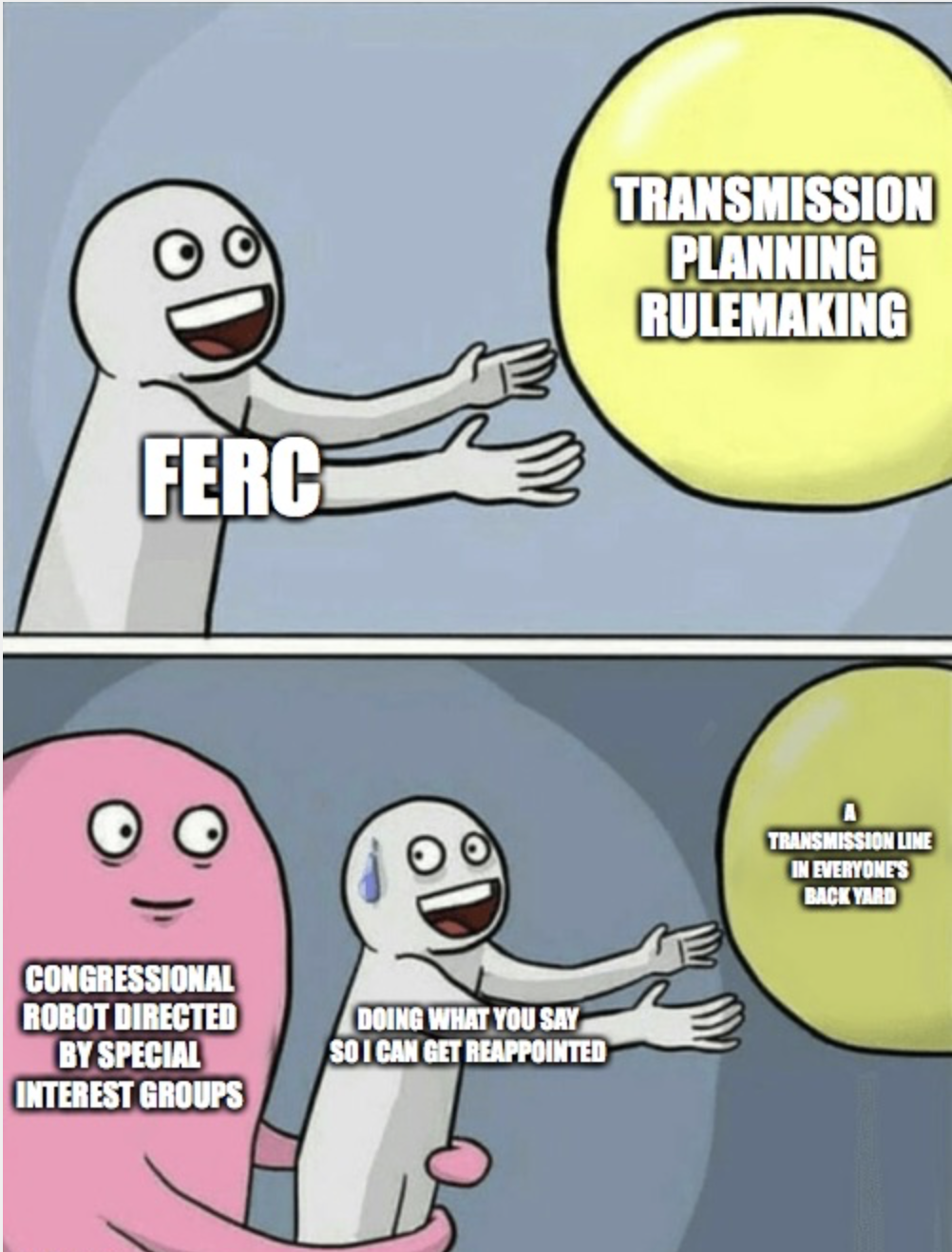Last year, FERC opened a rulemaking to make new regulations governing interstate transmission planning, cost allocation and generator interconnection. FERC claimed its existing regulations had become unjust and unreasonable and no longer comported with the law Congress had made. That's justification enough to change the regulations.
FERC sought comments on its new transmission rulemaking. Lots of concerned companies, groups, and government officials responded, including a group of consumer organizations with a history of defending themselves against unneeded, unwanted transmission projects. (See initial comments here, and reply comments here.) FERC has the issue under consideration and has said it hopes to release a proposed rule by the end of this year.
However, last week Senator Sheldon Whitehouse introduced legislation he called the CHARGE Act. (Connecting Hard-to-reach Areas with Renewably Generated Energy - Maybe they're only hard to reach because they are energy parasites who refuse to create any energy in their own back yards?). The CHARGE Act is "endorsed by Public Citizen, Earthjustice, Natural Resources Defense Council (NRDC), New Consensus, Grid Strategies, and Digital Climate Action." And it sounds incredibly familiar. In fact, it's just a slimmed down version of these groups comments on FERC's transmission planning rulemaking docket. Instead of allowing FERC to finish its rulemaking docket, these special interest groups have attempted to short-circuit and second guess FERC's process by having Congress enshrine the rule they want into law. FERC might as well tear up all the stuff that hundreds of parties spent time and money creating... the spoiled babies are attempting an end run around FERC in order to get their own way in a FERC proceeding by going through Congress instead.
If this is the way things are going to proceed from now on, FERC might as well just stop doing anything except rubber stamping the political wish list of the party in power. That's pretty much what it has been doing since at least 2017, anyhow.
Maybe Congress needs to be reminded that when it created the DOE, it retained an impartial regulator (FERC) to be independent from DOE because the DOE was expected to be too political to regulate impartially and effectively?
At any rate, take a look at the CHARGE act and see if you can figure out who's missing from this FERC technical conference guest list:
(A) LEADERSHIP.—A technical conference convened under paragraph (1) may be led by the members of the Commission.
(B) PARTICIPATION.—The Commission may invite to participate in a technical conference convened under paragraph (1)
representatives of residential ratepayers, transmission providers,
environmental justice and equity groups, Tribal communities,
Independent System Operators,
Regional Transmission Organizations, consumer protection groups,
renewable energy advocates,
State utility commission and energy offices, and such other entities as the Commission determines appropriate.
Here's another... who is missing from this transmission advisory committee?
(b) REPRESENTATION.—The committee shall be composed of not more than 30 members, including--
(1) at least 2 representatives of end-use customers;
(2) at least 1 representative of transmission providers;
(3) at least 2 representatives of environmental justice and equity groups;
(4) at least 1 representative of Tribal communities;
(5) at least 1 representative of Independent System Operators;
(6) at least 1 representative of Regional Transmission Organizations;
(7) at least 1 representative of consumer protection groups;
(8) at least 2 representatives of renewable energy advocates;
(9) at least 1 representative of State commissions;
(10) at least 1 representative of public power entities;
(11) at least 1 representative of marketers; and
(12) at least 1 representative of generators.
It's not like they think landowners are represented by any of these groups. It's clear in another part of the bill that landowners and affected communities are something that must be communicated with.
(c) OFFICE OF PUBLIC PARTICIPATION.—The Commission shall consult the Office of Public Participation during the rulemaking process under subsection (a), including with respect to--(1) guidance on public participation requirements; (2) communications with the public concerning transmission planning that may impact local communities and land owners, including Tribal, indigenous, and environmental justice communities; and (3) minimum data transparency and access requirements.
And then they wonder why transmission opposition forms and ends up cancelling or delaying their project?
I miss democracy.

 RSS Feed
RSS Feed